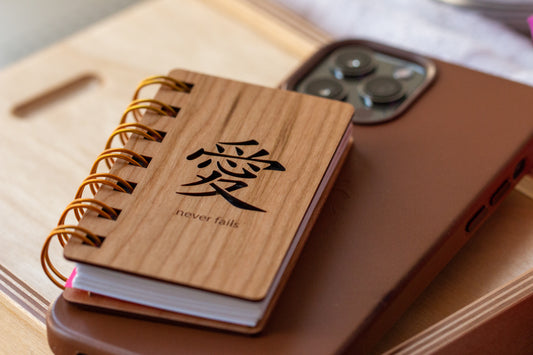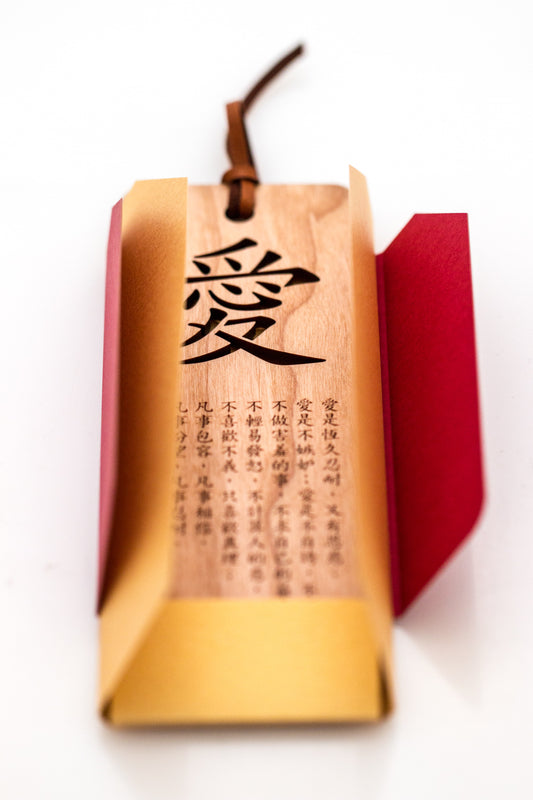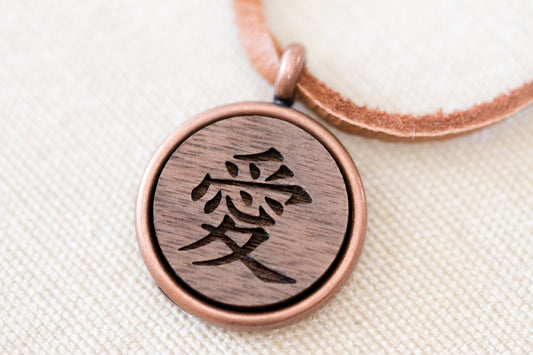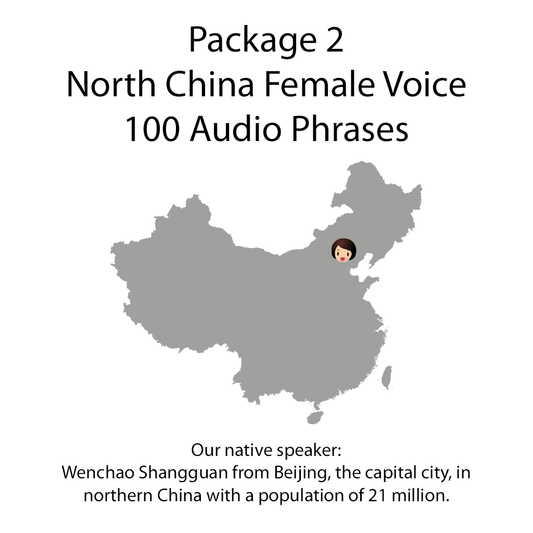Collection: The Power of Ài
Discover the timeless beauty of Ài (愛)—the traditional Chinese character for love, cherished across China, Japan, and Korea. More than just a word, Ài carries the heart (心) at its core, symbolizing love that is not only spoken but deeply felt.
The Power of Ài: Love, Art, and Meaning
Each stroke of this character tells a story—of passion, devotion, and connection. Whether engraved, painted, or crafted into meaningful keepsakes, these pieces transform Ài into an enduring expression of the love we share.
The Power of Ài: A Symbol, A Gift, A Promise
From elegant calligraphy to timeless artifacts, this collection offers gifts that speak from the heart. A perfect way to celebrate love in all its forms—romantic, familial, or spiritual.
Embrace The Power of Ài—where love is not just a feeling, but an art.
-
Love Never Fails Pokénōto
Regular price $25.00 USDRegular price -
True Meaning of Love Bookmark
Regular price $25.00 USDRegular price -
Chinese Symbol for Love Necklace
Regular price $29.00 USDRegular price -
100 Mandarin Phrases Every Chinese Loves to Hear You Say (Digital Download)
Regular price From $0.99 USDRegular price$4.99 USDSale price From $0.99 USDSale







